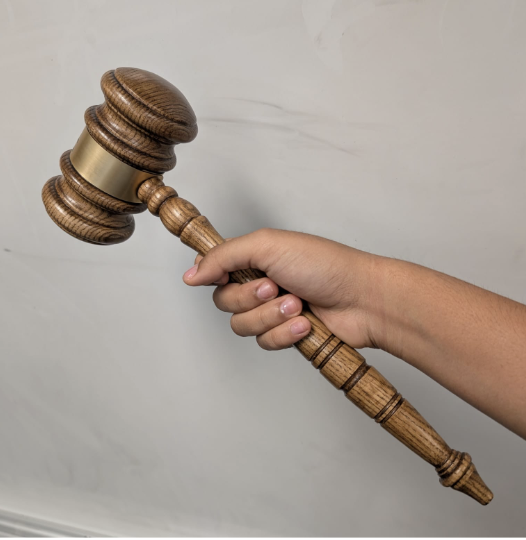Philosopher John Rawls once wrote, “Justice is the first virtue of social institutions, as truth is of systems of thought.” Justice is an inalienable moral framework, occupying the concept of fair treatment to ensure the function of an efficacious society. Absent of this core principle, systematic inequality would propagate and human conflict would arise, leading to a disruption of the social order. In today’s world, the court system is the mechanism that adjudicates justice impartially, while often imperfect. As our burgeoning population continues to advance, it appears that judicial concerns have escalated, yet have not been prioritized. One of these fundamental challenges is known as court backlog, where the court’s resolution has plateaued because of the ceaseless accumulation of cases. The impact is significant; continued accretion of pending cases that have not been heard has led to an interruption of legality, preventing democratic governance. It is clear our legal system requires a reevaluation, to recognize that social justice is not an ideology that should be delayed and to gain insight on the reasons for how backlog has come to be.
In late 2019, the emergence of a contagious respiratory illness shifted the world forever. Covid-19 was a global pandemic that not only harmed those who were afflicted but also influenced judicial processes. Previously, underlying problems were already pertinent, but they were exacerbated as courthouses were forced to close and cases exceeded the capacity of attorneys and judges. Thomson Reuters conducted a report in 2021, analyzing what had happened as a result; it found that there was a 39% increase in the backlog of state cases. This is particularly prominent for criminal trials, where defendants have a constitutional right to face their accusers, thus further delaying the process despite a transfer towards online hearings. Additionally, these remote trials had concerns regarding the presentation of evidence. Many respondents described the undertaking as difficult, further hindering resolutions at an opportune time. Overwhelmed by the bottleneck, systemic inefficiencies were highlighted as justice for individuals was impeded, remaining as something that has still not been resolved in the status quo.
The ramifications of backlog cannot be understated, and they are seen in varied domains of the law. In present times, even as attempts are made to recover from the pandemic, the issue persists and supplemental complications emerge. Across the United States, Syracuse University’s research center, TRAC, discovered that immigration cases have tripled since 2020, with roughly 3.6 million that await to be assessed and wait times increasing to an estimated 636 days. “Justice is important because it establishes right from wrong, truth from fraud, and ensures fairness and order in a society.” states Alison Chen, a partner in charge at Akin Gump Strauss Hauer & Feld LLP, “It is based on the highest absolute moral values regardless of culture, race, gender, and religion.” When justice dawdles and becomes inaccessible, impunity prospers as individuals are left absent of recourse from disservices experienced.
The strive towards a just world has been beset by difficulties. Prolonged uncertainty equates to trust becoming desolated and a descent into a reality where disorder becomes the new standard. It is a blur between the lines of what is ethical or not, aggrieving moral principles and providing grounds for a dissonance of self-serving actions. Here at The Village School, our diverse community is known as a cornerstone for equality. This direction has allowed us to be privileged in the department of fairness, where students are able to understand each other through manifold perspectives. But we must realize, that it is incredibly paramount that a commitment to justice is not simply just representation, but rather how we can use our actions to continue to influence the society around us. The inherent worth of every individual should be a verity that is unquestioned.
Resources
www.knightnicastro.com/blog/how-backed-up-are-the-courts.
tracreports.org/whatsnew/email.250320.html.
legal.thomsonreuters.com/en/insights/reports/impacts-of-the-pandemic-on-state-local-courts/form?gatedContent=%252Fcontent%252Fewp-marketing-websites%252Flegal%252Fgl%252Fen%252Finsights%252Freports%252Fimpacts-of-the-pandemic-on-state-local-courts.
plato.stanford.edu/entries/rawls/.
stateline.org/2024/01/25/shortage-of-prosecutors-judges-leads-to-widespread-court-backlogs/.








